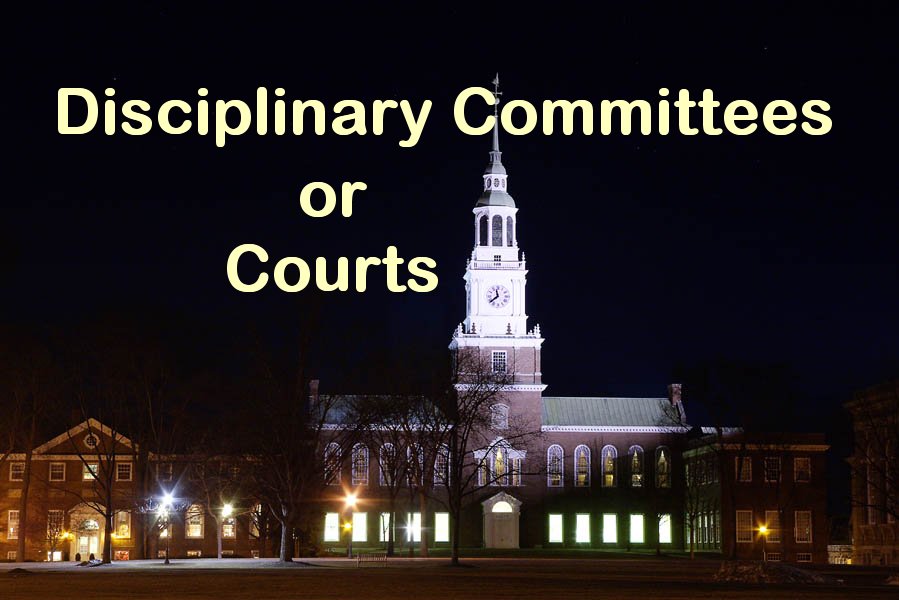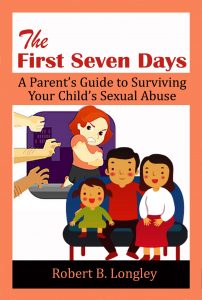There’s an interesting debate going on at campuses around the country. What to do with sexual assaults? Is it simply a matter of referring all sexual assaults to the police, or should they be managed internally by a college disciplinary committee? It’s an issue that gets pretty complicated the more you talk about. There are actually problems with both approaches.
Refer sexual assaults to the police
Out in the real world sexual assaults are generally processed through police. Offenders are arrested, processed, they get a lawyer, and a court date is set up. It doesn’t always happen that way, but usually. It might take several years, but the case may make it to court. Unless you have a video, DNA evidence, or confession the jury may need a little convincing. It may not ever get that far. Prosecutors have limited resources and sometimes a plea deal makes more sense for their case load. Sexual assault 4 gets plead down to aggravated assault, offender applies for accelerated rehabilitation and gets 2 years probation. or some scenario like that. Assuming all of this happens in a college setting, offender and victim may still be attending classes together while this drama plays out in court. Or until the victim becomes so uncomfortable that she transfers.
Then you have the issue of needing to testify and go to court multiple times. And heaven forbid that you were drunk when you were sexually assaulted. The arguments that a defense attorney will make will not paint victims in the best like.
Lessor offenses such as fondling or groping become much harder to prove, and the reality is the courts are overbooked and they just don’t have time to deal with the small stuff. It might not be small to a victim, but crimes involving weapons, property damage, and physical harm will almost always beat out sexual crimes. It’s not a perfect system.
Refer sexual assaults to a college disciplinary committee
You wouldn’t refer a murder suspect at a college to a disciplinary committee, so why would you refer someone for sexual assault? Part of this comes back to my real world comment earlier. College isn’t the real world. You have an artificial homogeneous age group living together separated from other norms. Anyone who has been to a 4 year college can site behaviors that generally don’t happen in the outside world. So should real world offenses follow the rules of the real world or the artificial world?
Colleges are chartered with providing a safe learning environment. Disciplinary committees can enforce that where the legal system usually can’t. An offending student can be removed from the campus in a timely manner and provide additional support and protection for victims that feel threatened. The problem is that disciplinary committees are generally setup for academic and code violations. They are not experts in sexual assault or evidence practice. You may as well have your gardener acting as your lawyer.
Stupid Behavior vs Criminal Behavior
Most college staff and students have heard of the Clery Act. It is a law for the past 20+ years requires colleges to publicly report their campus sexual assaults and criminal activities. I actually went to school with Jeanne Clery. We had met in passing but I was a senior and she was a freshman so I’m sorry to say I didn’t know her better. I do remember the day she died almost as vividly as most of your memories of 9/11. Jeanne’s death was a tipping point in how campuses managed both stupid and criminal behavior. The days of free flowing alcohol and fraternities was largely curtailed by insurance companies refusing policies to houses that served alcohol to minors. And the campus police that were more of a drunk taxi on the weekends began being more police like and arresting people for public drunkenness. I don’t know that anything was ever done to curtail the rampant theft of lawn gnomes from whole communities, but you can’t solve all the worlds problems at once.
Even in the real world, sexual assault is a gray area. Look at it in the light of college craziness and it gets even more cloudy. A recent article sighted a murky figure that somewhere north of 20% of college men would be considered as having committed sexual assault. A lot of this has to do with whether someone who is legally drunk can give consent to having sex. Without getting into specifics I think many college students would be surprised to find that their sexual activities are actually illegal. Imagine if one in five male college students came out as a registered sex offender. It’s an extreme but possible scenario if all college sexual activity considered legally non-consensual was processed as criminal activity.
Victim Perspective
Does anyone care what the victim wants? In the legal system, it generally isn’t taken into account. Sure there are victim impact statements which have some impact but not much. There are specific guidelines to ensure impartial treatment. This doesn’t address that they may still be applied inappropriately, co-opted by defendants with deep pockets, or set aside based on overwhelmed courts. Within college systems, there may or may not be opportunities for victim’s perspective to be heard. So much depends on what was done, what the experience of the victim was, and what their past experience with this has been. Someone who was touched inappropriately may have a different reaction if something similar had happened as a child. What might be completely brushed off by one person might result in full on PTSD in another. One person might want their offender given the death penalty and another might just want an apology.
An Alternative Approach?
Innovative law enforcement officials across the country are looking at different approaches to solving problems. While not sex offenders, the Gloucester Police Department recently started a program for addicts. Instead of arresting the same people over and over again they started a turn yourself in and go to rehab program. It’s working.
Juvenile Review Boards are a concept I’m familiar with that I think could form a model for college sexual incidents. The basic concept is looking at diversions activities to keep kids out of the system. It usually involves a team of school officials, law enforcement, legal, and social workers. They come up with a non-judicial plan to try and keep the kid out of the system. Most of the time it works.
What if colleges and police did something similar? The dynamics are different so it would actually involve two separate panels. One for victim and one for offender.
On the victim side, the group would use a Multi-Disciplinary Team (MDT) approach to gather a statement, medical exam if needed, perform counseling and review with police and prosecutors. Some of the topics covered with victims would be:
- How do they feel about what happened and what would they like as a outcome
- Do they feel safe with their offender in school
- Likelihood of the case being accepted for prosecution
- court process if applicable, time and possible outcomes
Victims would participate in the decision process for both possible directions. They might not control the outcomes, but they would have a say if whether something was handled disciplinary or legally.
For the accused there may be many options:
- No action – either deemed consensual, not pursued or unsubstantiated
- An apology and some educational program on sexual abuse
- Domestic violence program
- School discipline and or expulsion
- Arrest and prosecution
There is no one size fits all approach to sexual contact which is either intentionally or unintentionally unwanted. We need to separate stupid from criminal behavior. We need to replace punishment with education where appropriate. And we need to give victims more control over the experience and outcomes.
Let us know if we can help you dealing with your family’s sexual abuse situation. For ideas to get started please check out our book on what to do during the early days after disclosure.

